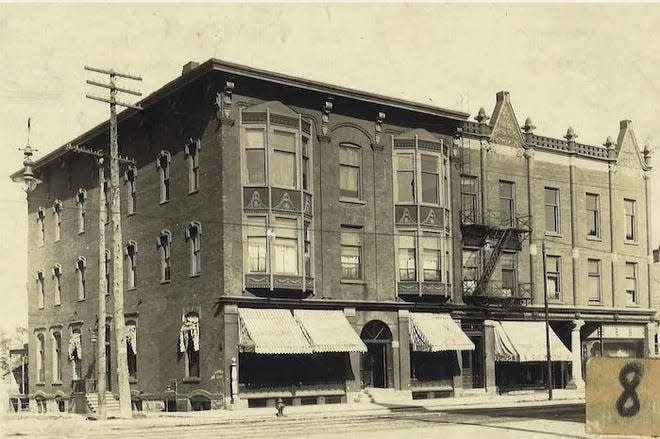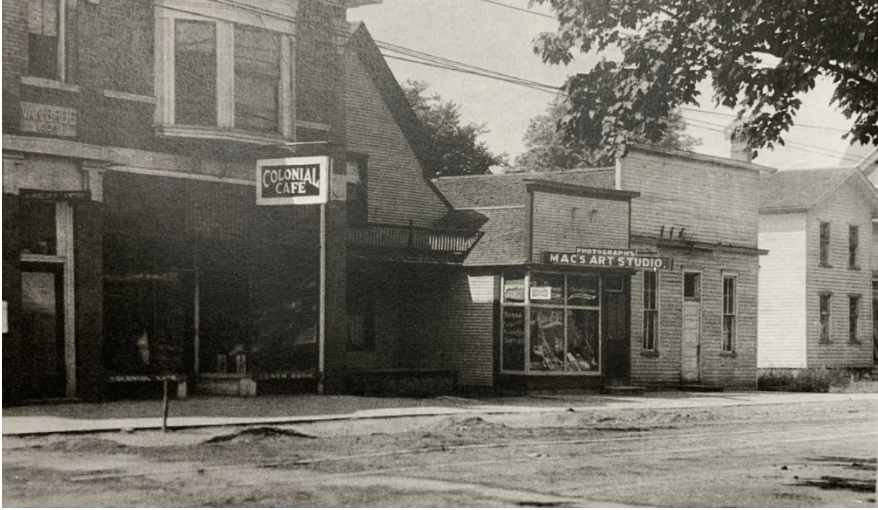Steve VanderVeen: Holland benefited early on from BIPOC expertise

Most of Holland’s earliest business people were of European descent, but there were notable exceptions.
For example, well before 1624, when the Dutch West India Company planted their colony, New Amsterdam, on present-day Manhattan Island, the Odawa (Ottawa) had migrated from Northeastern North America to Manitoulin Island and the Ottawa River, to the Straits of Mackinac, their new base of operations.
Masters of canoe-making, the Odawa traveled not only along the Great Lakes but also across them. The Odawa, like the Dutch, were traders, transporting goods between different indigenous nations and trading with the French, who had planted a colony at Montreal. The French, then, competed with the Dutch, and later the British, for control of the North American fur trade. For this, they needed the assistance of the Odawa.
In the Straits, the Odawa fished, grew vegetables and trapped. In the fall, they supplemented their food sources by moving south in small family units along the Muskegon and Grand River basins. Then, as spring approached, their leanest time of year, they repaired their canoes, collected sap from maple trees and moved north to catch spawning sturgeon before returning to the Straights.

By the 1830s, Young Chief Wakazoo was leading one of those small family units. When Captain Macy of the failed Point Superior settlement died in 1840, the Odawa became the supplemental food supplier to George and Arvilla Powers Smith, their missionaries, who greeted Albertus Van Raalte when he arrived at their Old Wing Mission on New Year’s Eve, 1846.
The year before, according to Smith, the Odawa had produced 15,000 pounds of maple sugar and sold cranberries, pigeons, animal skins, and meat to the European residents of the surrounding villages; previously, in one day, they shipped six canoes full of cranberries to Kalamazoo and St. Joseph to exchange for flour.
But there were also early notable businessmen of African descent.
Jannes van de Luyster, a follower of Van Raalte, in 1847 led one of the Dutch emigrant societies to West Michigan. While staying at “Het Waterhuis,” a 16x24-foot log cabin along the Black River, his men from the Province of Zeeland were chopping a road through the woods from Groningen to their new home on the hill. Future banker Jacob Den Herder, then a boy, described what happened next.
“It was evident that we all as men needed instruction in the manner of cutting trees and in a great variety of other ways, so it happened that our leader Van de Luyster on a certain Sunday brought us an African boarder to instruct us. We were however much surprised to have to put up with a boarder with a skeleton of a horse; no pasture for the poor animal was anywhere near; only the leaves of trees and a bushel of corn in the ear was all he had for the poor animal.
"Consequently in a few weeks the creature died of hunger, but (he) did well in instructing us in the warfare with the forest. He was a very quiet man, but we were glad to see him move away after a few weeks’ stay.”
Subscribe: Get unlimited access to our local coverage
The Zeelanders seemed much happier with their next visitor of African descent, George Washington. A barber, his shop was in the basement of a building that had at one time been a saloon. In 1909, Dirk Van Bree, one of Zeeland’s two pharmacists, moved the structure to the west so he could build at 52-56 E. Main Street, the Van Bree Building, to house his business.

Silas Sills was another businessman of African descent. He was born in 1832, and migrated from New Brunswick, New Jersey in 1873. In Holland, he worked as a coachman for the Holland City Hotel, transporting guests in a large, enclosed, horse-drawn carriage to and from the train depot, then located at Ninth Street and Lincoln Avenue.
He was well-known in the community for the following reasons: he was Black, he had a big bass voice, which he used to rouse his horses, and he knew the Dutch language, likely because he had lived in New Brunswick, once part of the Dutch colonial settlement of New Netherland.
Today, Silas and George lie in unmarked graves.
Information comes from Jacob Den Herder’s “Life Sketch of Myself,” Michael McDonnell’s "Masters of Empire," Randall Dekker’s "Main Street Memoir," Michael Douma and Robert Swierenga’s "Village Talk," and Swierenga’s "Holland, Michigan."
— Community Columnist Steve VanderVeen is a resident of Holland. Contact him through start-upacademeinc.com.
This article originally appeared on The Holland Sentinel: Steve VanderVeen: Holland benefited early on from BIPOC expertise
